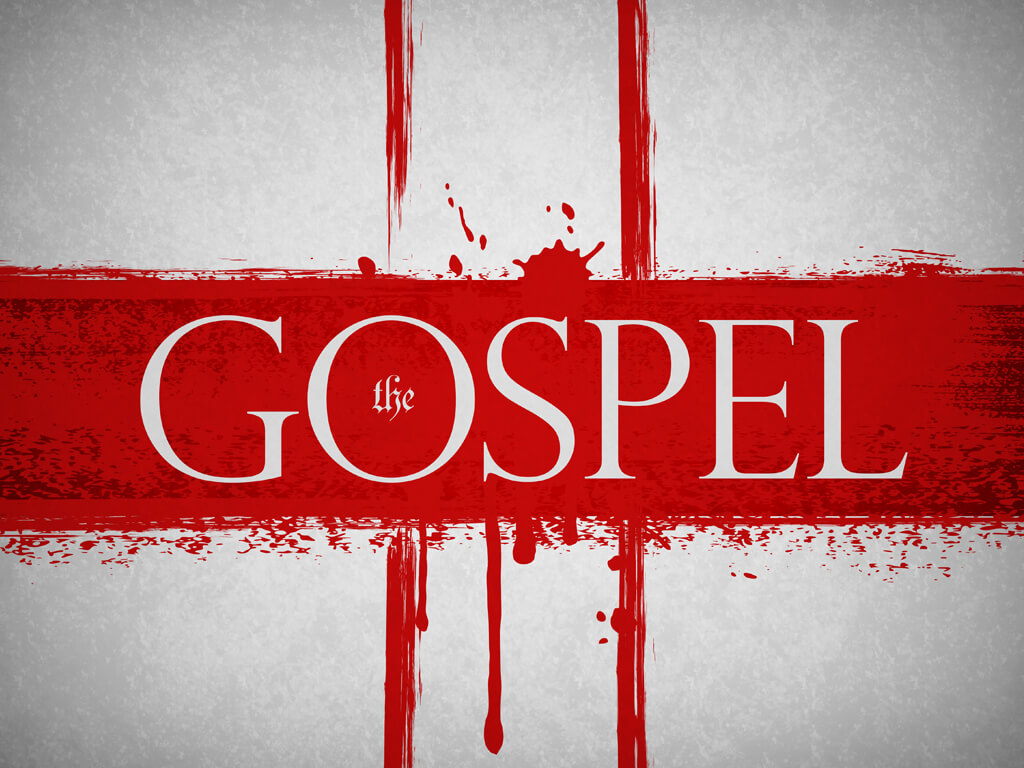

As one dives deeper into the gospel one encounters life-awakening truths. These truths awaken once dead hearts with the knowledge that they have been brought into a cosmic romance. Arousing affections for something beyond oneself as one experiences what it is to be truly desired and loved.

The gospel answers our deepest longings as we strive for everlasting joy.
God has always been and all time is as one day for Him.
God did not wake up one day wave his fairy wand and decide, “Okay, I’ll sprinkle some saving grace over this one,” (Psalm 90:1-4, 102:12, 24-27, Isaiah 57:15; 2 Peter 3:8).
Nor were the Father and Son sitting in the living room when surprisingly the doorbell rang. “Surprise, Father look who’s here.” (Job 42:2, Psalm 115:3, Proverbs 16:4, 9, 33, 19:21, 21:1, Isaiah 14:24-27, 45:7, 46:9–11, Jeremiah 1:12, Lamentations 3:37, Ezekiel 12:25)
Knowing that God planned for you to be his from before you were born should bring a deep sense of the immeasurable love God has for you (Psalm 103:10-12, Romans 5:8).
When our view of God is based on the chaos of our lives, our experiences or our emotions we will always have a view of God that is less than He is. Consequently our view of His law’s demands and requirements will be less than it actually is. This will always leave us with less wonder and awe of God than we should have.
As long as we view the law in the midst of our chaos and not above we will always remain, self-sufficient and self-righteous. Reaching inwardly for the answers to the ebbs and flows of life.
(Genesis 28:17; Deuteronomy 6:5; Exodus 15:11; Psalm 33:8, 65:8; Matthew 22:36-40; 1 Corinthians 10:31; Romans 12:10)
Blue collar gospel is that which bases our relationship with God on our ability to do what we think the Holy Spirit is helping us do, rather, than completely on Christ's perfromance. Anytime we base any aspect of our relationship with God on what we are doing we have fallen into this type of thinking. Such thinking allows us to step into a self-sufficient, independent, self-righteous, self-perseverance, self-automony and "I know best," mindset. Consequently retaining a view of God’s holiness that rarely leaves us broken, tender-hearted, and crying out to hear the gospel again in order to be relieved from the pressing weight of our sin. As long as moral standards, right living, a degree of obedience or any other thing besides Christ is how we define ourselves or is a part of how we tell others who we are, then we cannot fully experience the freedom that comes from knowing that Christ is the source of all true identity and value.
When the law exists as nothing more than a way of keeping us from realizing our deepest fears of being found insignificant, inefficient, unable or incapable than it will always remain in our chaos. We will always be left with an inability to turn those things that seem to be upsetting our peace, our serene life, into opportunities to be reminded of gospel truth, to push us down into the well of the gospel of grace, so that we come out dripping wet, ready to live for the one who loves us intensely. (Deuteronomy 6:5-7;10:12-13;11:28;27:26;28:1;15-20;30:16; Joshua 8:34; Jeremiah 11:3; Daniel 9:11; Mark 12:31; Romans 2:12;3:20;6:23 Galatians 3:10-13;5:14; 1John 3:21-22)
Often we fail to realize that what is fueling the belly of the beast’s desire for a better life, to be accepted, to be loved, more accomplised and more acknowledged (Even if by God.); comes from us still working to provide or change the answers to the questions of where do we belong, why do I matter and why am I significant, only now we are using Christianity, and God as the answers. It is only as we encounter a law whose constant demand and requirement rob us of any ability to claim obedience, self-propagated holiness or that we are getting it that we discover a love that comes not because we are impressive, but because the giver of the love is. Here is when our thinking moves from one kingdom to another. (1 Samuel 16:7, Psalms 94:12, 103:1-14; Ezekiel 14:1-5, Matthew 5:3,11:28-30,18,20-21,48,22:37-40; Mark 12:33, John 15:11, 17:3; Ephesians 3:14-21; Romans 3:3-5, 20-21, 6:17, 7:7-12,22, 8:20-24, 15:17-18; 1 Corinthians 1:4:1-5, 2 Corinthians 1:9, 3:4-6, 5:16; Galatians 6:3, Ephesians 3:14-21, Colossians 3:2, 4:17-24; 1 Timothy 1:15, 2 Timothy 1:9, 6:16 Titus 1:2, 3:5; 1 Peter 1:6-9; 2 Peter 1:3-4,8-9; James 1:22-24,10, 1 John 1:6-8.
In believing that Christianity is about doing more, working harder, shining and pleasing God it is quite possible to miss out on the fact that God is already drooling over one because it pleases Him to do so. When we miss the crushing demand from the law to give God what he perfectly gives Himself we may end up caught in a different net. A net made up of self-propagated holiness. An attempt to live a Christianity that is simply about having better devotions, prayer life, morality improvements, behavioral changes, more involvement, greater knowledge, and bigger doings we will often miss perfect lover.
Paul told the believers in Rome that they were not seeking God (Romans 3:10-12). Was he telling them that they were not obedient? Not at all! Christ, himself praised the righteousness of the Pharisees (Matthew 5:20) and at the same time called them whitewashed tombs (Matthew 23:27).
Both groups knew the law of God, including loving God with all your heart (Deuteronomy 6:4-5). It's the first law that they learned. If you asked them why they did what they did, they would have said because the law says to love God. Nonetheless, the harsh words of both Paul and Jesus reveal that God wants something more.
Their words speak to an issue that remains in man today. It is not uncommon for us to say that we love God, while our hearts are owned by another. The rarest of treasures is that which we guard and protect the most. Is there a rarer treasure than our hearts?
Our deepest issue is one that even a Google search reveals from secular psychologists; it is the riskiest of things to give our hearts away. It is far easier to protect it with our knowledge, theology, activity, right things, church activity, faux obedience, improvements, betterment, and duties. In the doing, we are able to cover our greatest fears and escape from taking the great risk of giving our hearts away completely. However, only in such risk is found that which we have always searched for love given unquestionably and unconditionally.
Nevertheless, it is within the greatest of risks that we find the most prized treasures. No treasure is rarer than the unconditional love of God. The same measures that we use to protect the rare treasure of our hearts, also keep us from experiencing the treasure of another's heart, Gods. Perhaps this is why God told Hosea, "I desire steadfast love and not sacrifice, for you to know me and not offerings (Hosea 6:6)."
God gave us His heart, and now He wants our hearts, not our willful obedience if it lacks heart. He calls us to offer in loving gratitude that which is most prized to us for giving us that which was prized to him. He desires us to reveal our hearts (Our very essence, being and that which makes us who we are.) belong to Him with hearts ablaze with worship for Him, and love for others.
We exist now in a different kingdom one where the King of this kingdom is heart chaser. Only when we give away our treasure do we experience the rare love of the perfect lover, as we get lost in a cosmic romance. Here is where freedom is found, when the desire of the heart joins with the will of the mind and we experience the freedom of loving God with all our heart. (1 Samuel 16:7;Psalm 4:23;9:1;19:14;24:1-5;34:18, Proverbs 14:1;21:2;27:19; Ezekiel 14:5-6; Matthew 6:21;9:13;12:34; 22:37; 1 Corinthians 10:31)
Jesus: "Jesus answered, “The work of God is this: to believe in the one he has sent.”
John 6:29 NLT
Without a fresh drink everyday we are left answering the questions we all ask with the same answers we have always given, rather than the ones God has given us.
The changing view of the law has left us thirsty for something outside of ourselves to meet and fulfill the thirst it has created.
Only the gospel can quench this thirst through its life-changing, sustaining, thirst-quenching truths that point to how deeply God loves.
Giving us new understanding every moment that we dive deeper and drink of it’s clear waters of the words Christ spoke when He said, “It Is Finished.” Creating a driving desire to increase our worship.